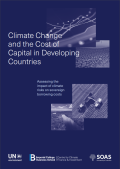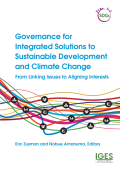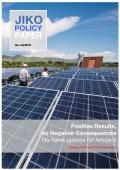Green Growth and Decarbonization of Energy Systems in a Changing World aims to show how the transition to a low-carbon society through the decarbonization of energy systems can bring social and economic benefits and foster countries’ economic competitiveness. It notably evaluates the inter-linkages between decarbonization and Sustainable Development Goals (SDGs) and emphasizes the need for carbon pricing and climate finance. Additionally, it advocates for ambitious industrial policies to accompany energy-intensive companies in the low-carbon transition and takes example in several successful cases of decarbonization around the world.
This policy report was developed based on submissions from LCS-RNet research members, presented during the 9th Conference of the International Research Network For Low-Carbon Societies (LCS-RNet), which took place on 12 and 13 September 2017 at Warwick University, United Kingdom.


Northeast Asia Carbon Markets and Trade Connections published by Asia Society Policy Institute (ASPI) in collaboration with ICTSD focuses on carbon pricing and the linking of carbon pricing systems as a potential catalyst for increased trade relationships, and explores how the benefits from linking can be heavily impacted by trade relationships and competitiveness concerns within the economies of China, Japan, and Korea.
The report introduces the different approaches to carbon pricing and linking currently being used by the three countries, explains the benefits and challenges of linking different carbon pricing systems, and proposes ways to deepen integration of carbon pricing and trade policies to promote regional carbon market linkage as well as increase trade between all three countries.

